Everyone loves a contest, and social media makes them so much easier to manage, since you share information about the contest, ask for submissions, then give out a prize, all from the comfort of your own home or office. Running a Facebook contest is especially beneficial, seeing as how you can take advantage of the wide range of features on Facebook to make a creative contest that’s unique to your brand and generate interest with the help of Facebook distribution tools.
Facebook contests get people excited and engaged with your brand. Not to mention, you often don’t have to spend too much money to run a successful contest.
 Table of contents:
Table of contents:
- How does a Facebook contest work?
- Decide the style and prize for the Facebook contest
- Make the contest announcement and guidelines as specific as possible
- Decide how people sign up or make submissions to the contest
- Test the Facebook contest like a regular user
- Promote the Facebook contest
- Announce the winner and contact them
How does a Facebook contest work?
Facebook doesn’t have an official app or feature to click on and start a contest right from your Business Page. Therefore, making a Facebook contest requires a bit of inventiveness on your end. Combine that with the many broadcast features from Facebook and you have a nice platform for announcing and moderating the contest.
To give a more specific answer, a Facebook contest works in one of the following ways:
- You announce contest details as a regular Facebook post or live video and include all the information for submissions/entries within that post. This requires more manual work on your part for logging submissions.
- You design a contest with a third-party contest app and use Facebook for the announcement, automating the entry collection process.
- You could also design a contest landing page with an entry form on your website and use Facebook to link to that page.


As you can see, Facebook serves as more of a communication module for contests, yet the first option could very well keep the majority of entries and communications on Facebook.

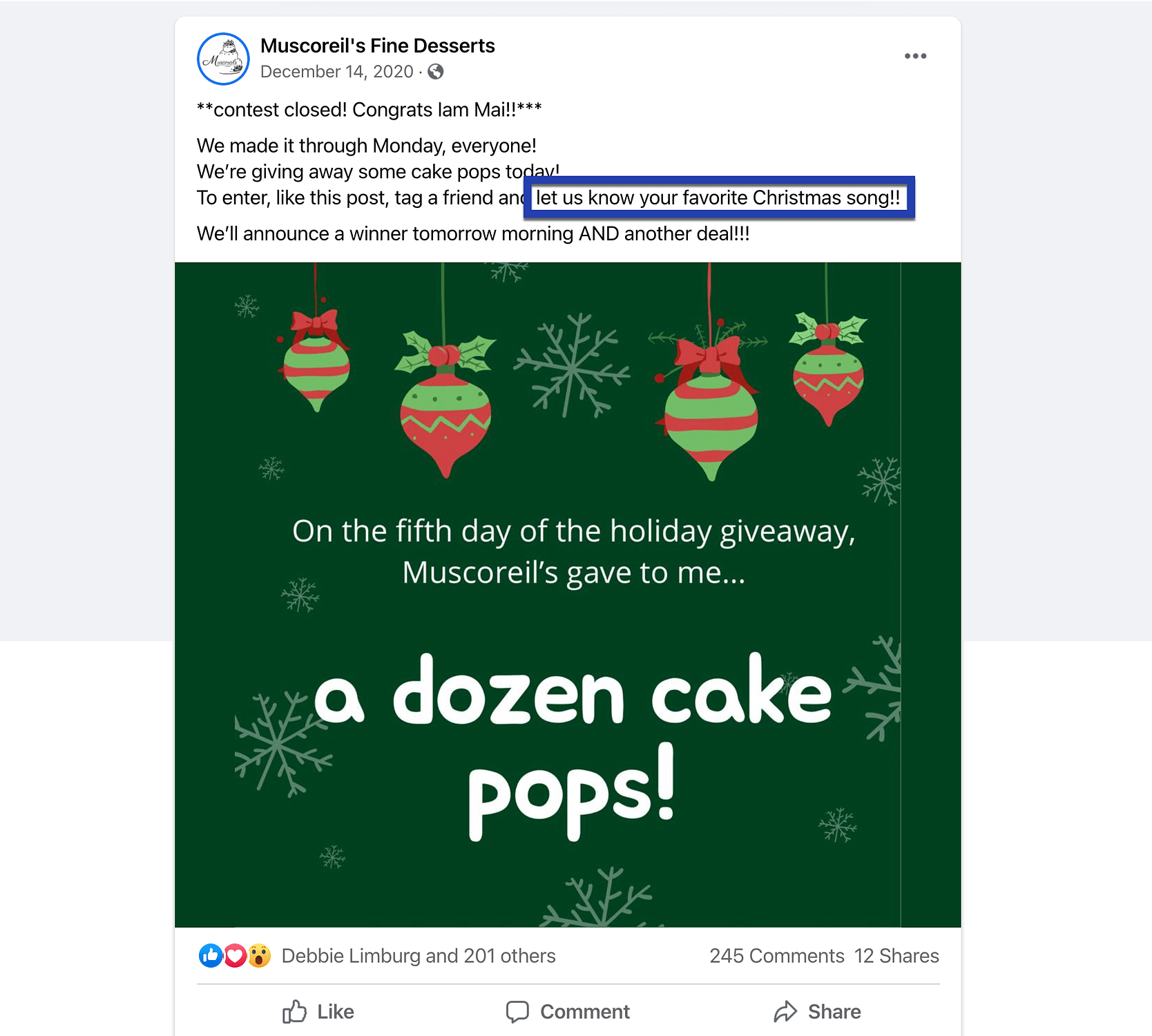
Now that we know how Facebook contests work, keep reading to learn all about how to decide on the style and prize for your contest.
Decide the style and prize for the Facebook contest
Every contest you run needs a style and a prize. By style, we mean the way in which the contest functions, with objectives and requirements. Some examples include:
 A user-generated content contest where the participants submit their own videos, pictures, or another type of media.
A user-generated content contest where the participants submit their own videos, pictures, or another type of media.
 A vote or survey to collect responses and have the “contest” between options you provide.
A vote or survey to collect responses and have the “contest” between options you provide.
 A response or caption contest, like where you post a photo and ask people to make the funniest caption.
A response or caption contest, like where you post a photo and ask people to make the funniest caption.
 Sweepstakes, where the user signs up and gains a chance to win.
Sweepstakes, where the user signs up and gains a chance to win.
 Another form of user-generated creation contest, like building a table or writing a poem.
Another form of user-generated creation contest, like building a table or writing a poem.
 A scavenger hunt, where participants check items off a list and potentially send in photos.
A scavenger hunt, where participants check items off a list and potentially send in photos.
 An answer contest, where you post an image or question and ask for people to answer the question or locate something in the photo.
An answer contest, where you post an image or question and ask for people to answer the question or locate something in the photo.

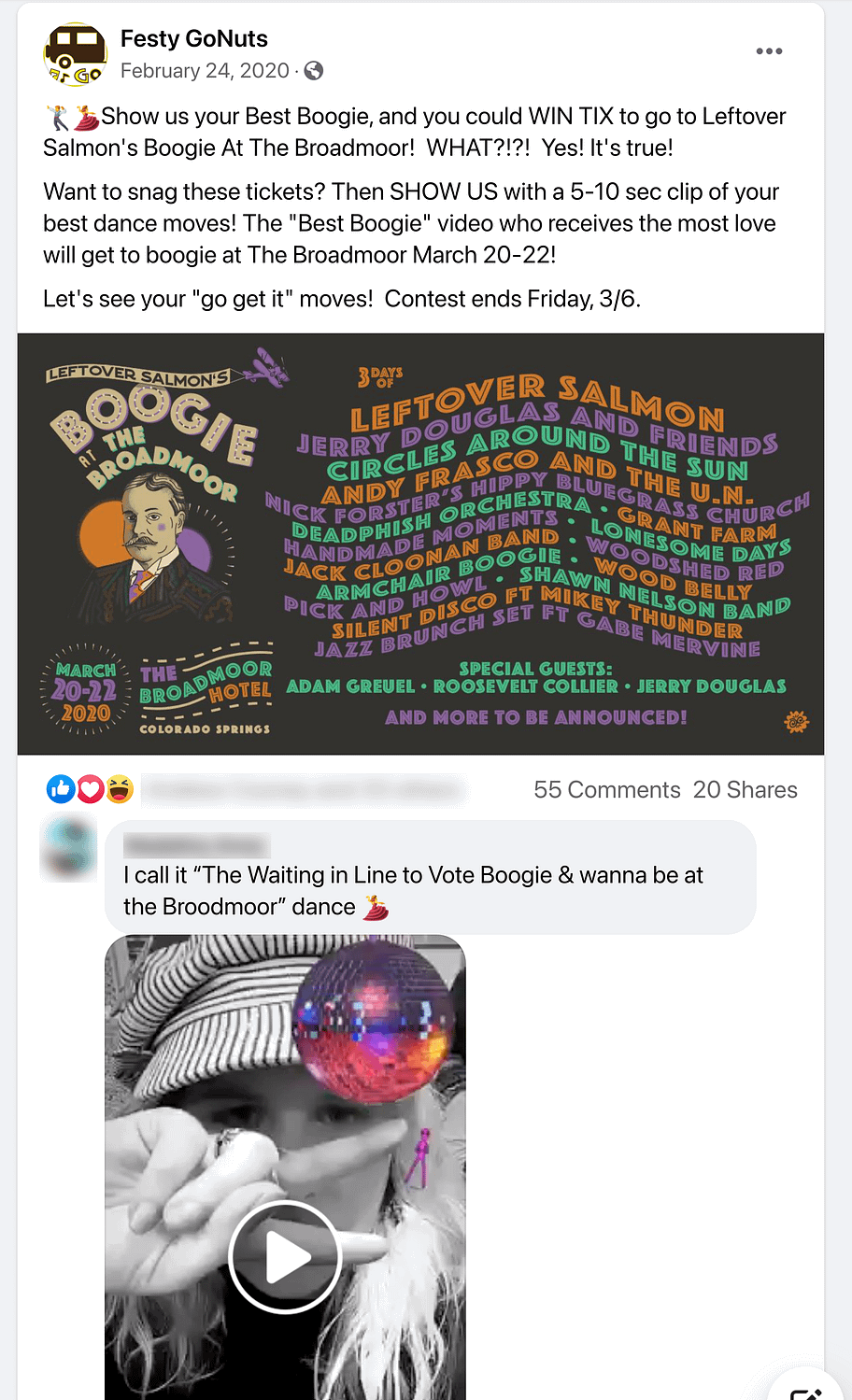
Next up, you want to figure out how those participants make their submissions. Much of this strategy involves the type of information you want to receive.
Examples include:
 Entering a contest by liking or commenting on a Facebook post.
Entering a contest by liking or commenting on a Facebook post.
 Filling in a form with the contact information like name and email address.
Filling in a form with the contact information like name and email address.
 Actually submitting a piece of content, such as a video or a photo.
Actually submitting a piece of content, such as a video or a photo.
 Tagging other people on Facebook or sharing it with followers.
Tagging other people on Facebook or sharing it with followers.


Finally, your Facebook contest structure needs a prize. This part’s fun, but also tricky, considering you want to strike the right balance to ensure your prize matches the contest and you don’t end up spending too much money.
View our best practices and tips for choosing a Facebook contest prize:
- Find a prize that relates to your business and what your readers or customers actually want. An author awarding a collection of past books makes sense. Whereas a blog that caters to young nomads wouldn’t want to give away a Viking Cruise vacation (much older demographic).
- Consider the value of the prize in relation to your own expenses and whether someone would see it as worthwhile to sign up. A $10 shirt or mug probably won’t convince people to spend too much time on a video and publish it on your Facebook page, but asking for a Facebook comment may work for a cheaper item.
- Remember that incredibly generous prizes are often seen as scams or too good to be true.
- To create urgency, give away a smaller prize on the contest’s opening day. That way people don’t have to wait several weeks or months to see who wins.
- Try to avoid extremely popular items that anyone may want outside of your target demographic. An iPad, for example, makes sense for many industries, but you risk attracting all the people who scour the internet for contests and only want your iPad, not adding much value to your data collection efforts.
- Factor in timing and distribution based on prize size. For instance, you could give out a $25 prize to multiple people, or every day for one week. Yet a $5,000 prize would only make sense as the big-ticket item.

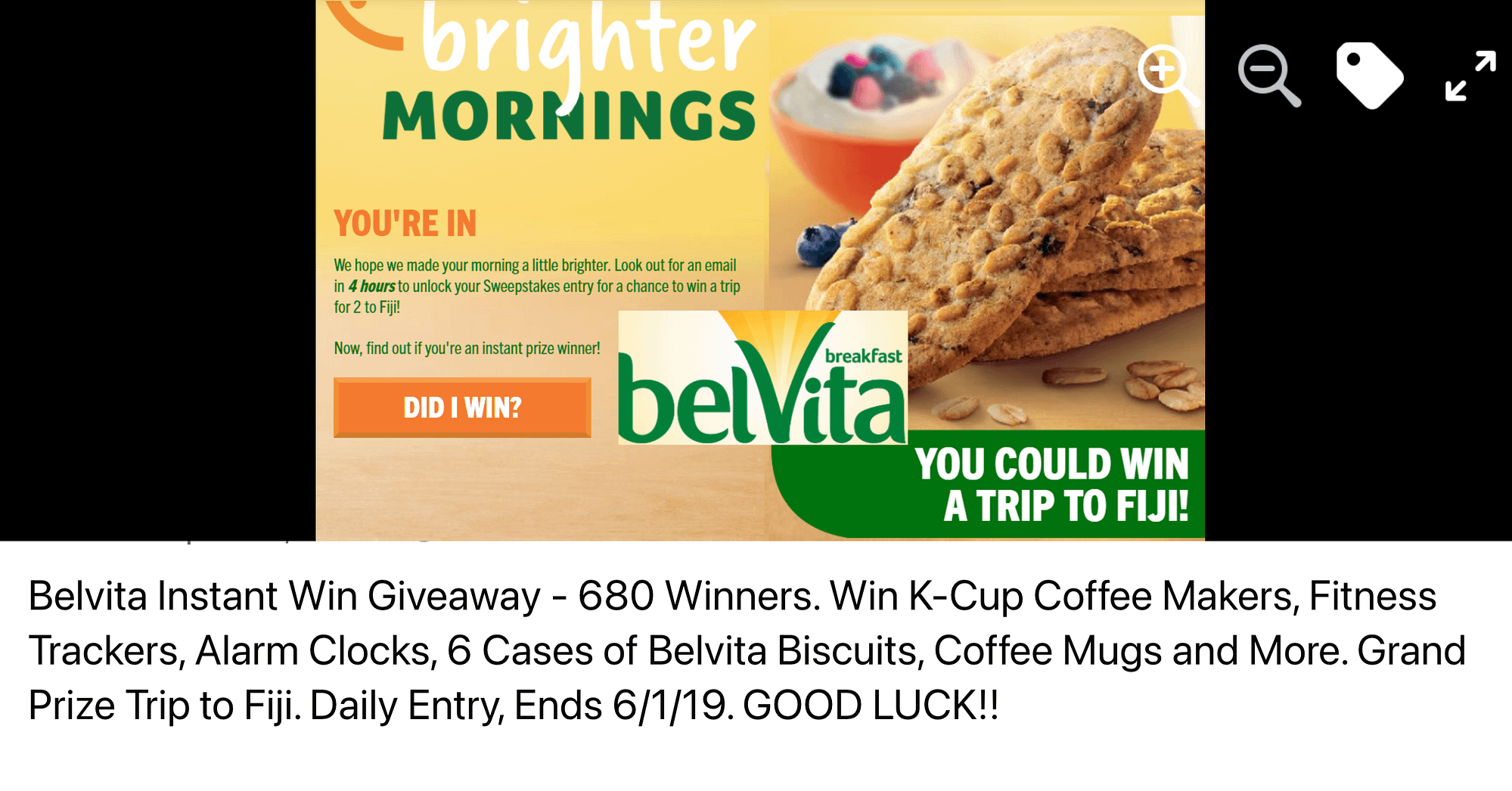
Make the contest announcement and guidelines as specific as possible
Contests turn confusing when they lack clear instructions. The last thing you want is to spend all your time clarifying the rules or figuring out if you should count submissions that didn’t follow the guidelines.
Get rid of both these problems by creating a simple, step-by-step list of instructions for the Facebook contest announcement. This way, people won’t ask as many questions, and you can simply disregard those who didn’t follow the rules (since you know the rules are clear).
Here’s what to include in your Facebook contest description:
- An intriguing call to action.
- A line about how to enter the contest (post a picture, write a comment, type your name and email into this form, etc.)
- Guidelines for contest submissions (take a picture next to a national park or make a comment that captions this photo).
- Additional social or data collection requirements (like having them follow your page or tag three of their friends).
- The start and end dates and times for the contest, along with when the winner gets announced.


Part of the contest details involves terms and conditions. These are very important to ensure no one messes with the rules or does anything illegal or compromising during their submission.
In general, we recommend making a Terms and Conditions page on your website and linking to that in the Facebook post, as terms and conditions are usually too long for a Facebook post.

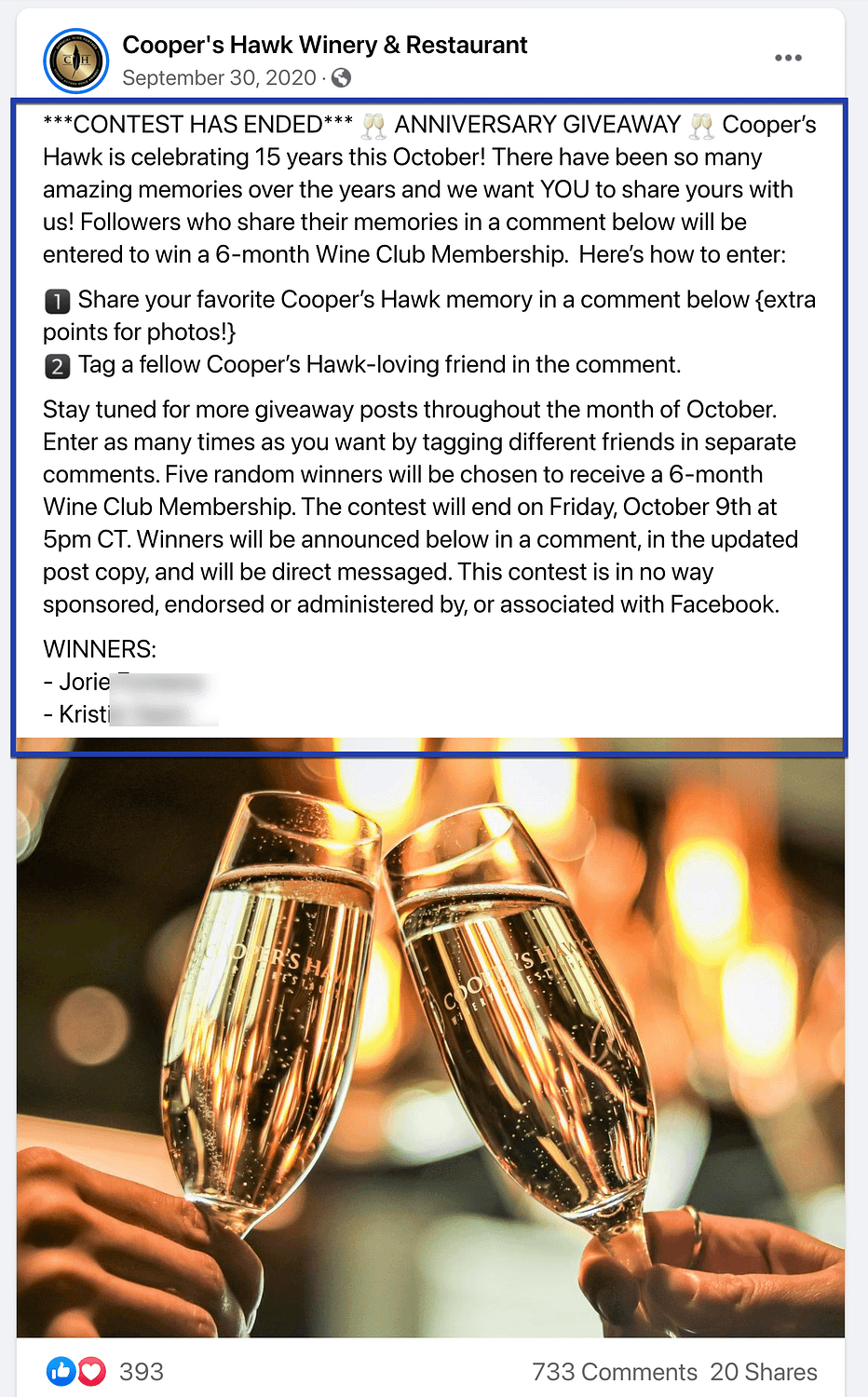
Here are examples of things to cover in the terms and conditions:
- All the general contest rules for eligibility.
- Age requirements.
- Local requirements, if you only want people to win in a certain geographical area.
- An explanation about sponsors, or the lack of sponsors.
- A mention about how the contest is not endorsed by or administered by Facebook.
- Restrictions based on relationships with people in the organization.
- Restrictions on how many times someone can enter.
- Content restrictions, like people putting themselves in dangerous situations for photos or having curse words or other adult content in videos.

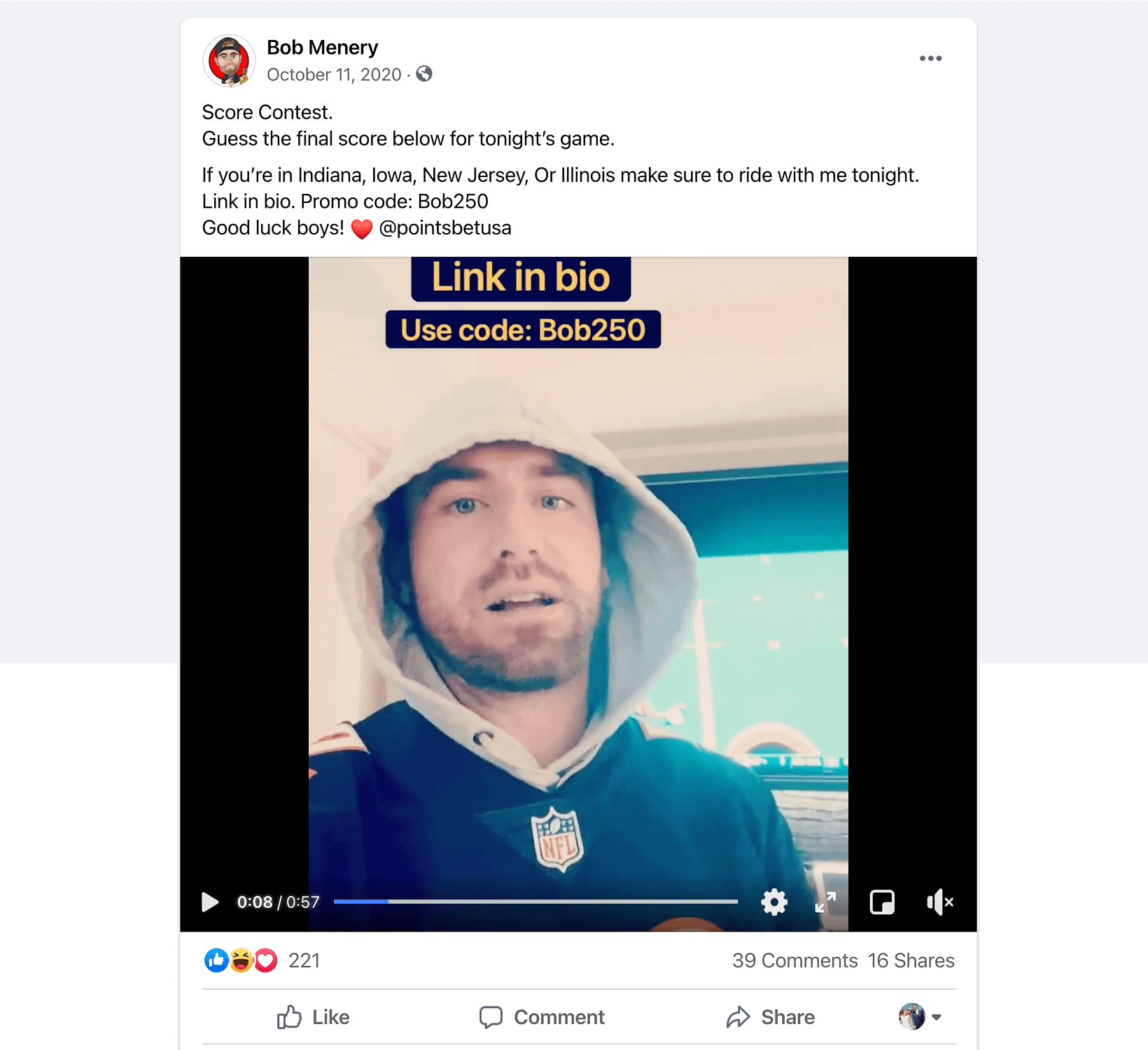
Decide how people sign up or make submissions to the contest
The simple route to collect contest entries is by asking for people to use built-in Facebook tools, such as comments, likes, shares, or by following your page. That way, you can manually go through all the comments or likes and identify the winner based on a random selection or a voting system (like if you had to choose the funniest photo caption from a list of comments from your users).
You may even consider utilizing some of the Facebook polling features to generate a flow of votes for a certain post, where all submissions get placed into a raffle.
Another option to collect submissions is by making a landing page with a form on your website. You could make a quick landing page in a content management system like WordPress, add a Google Form for submissions, and allow uploads for required submission items, like photos or videos.

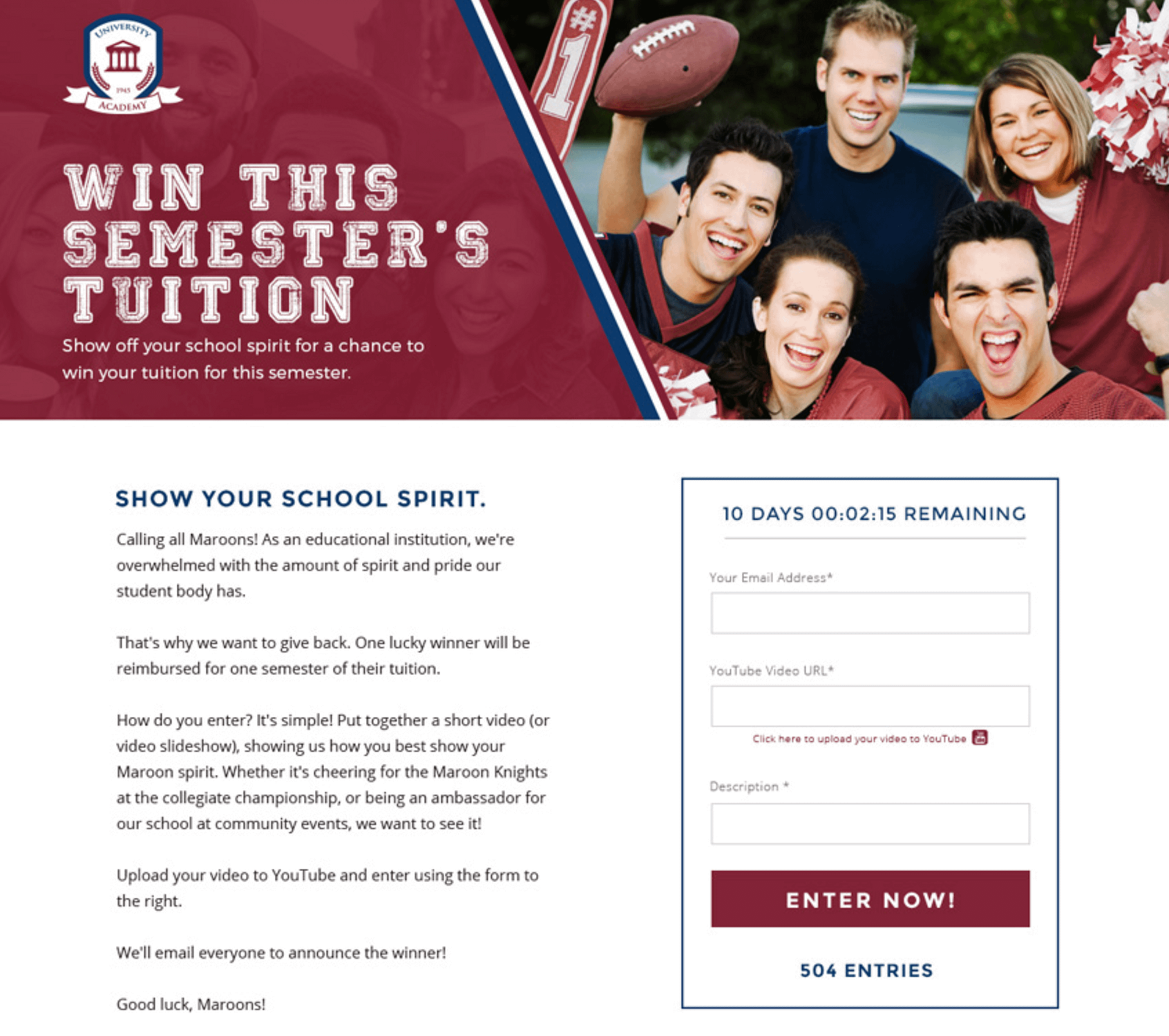
On the other hand, various contest-building apps exist to make a fluid contest selection and management process between both your Facebook page and a website.

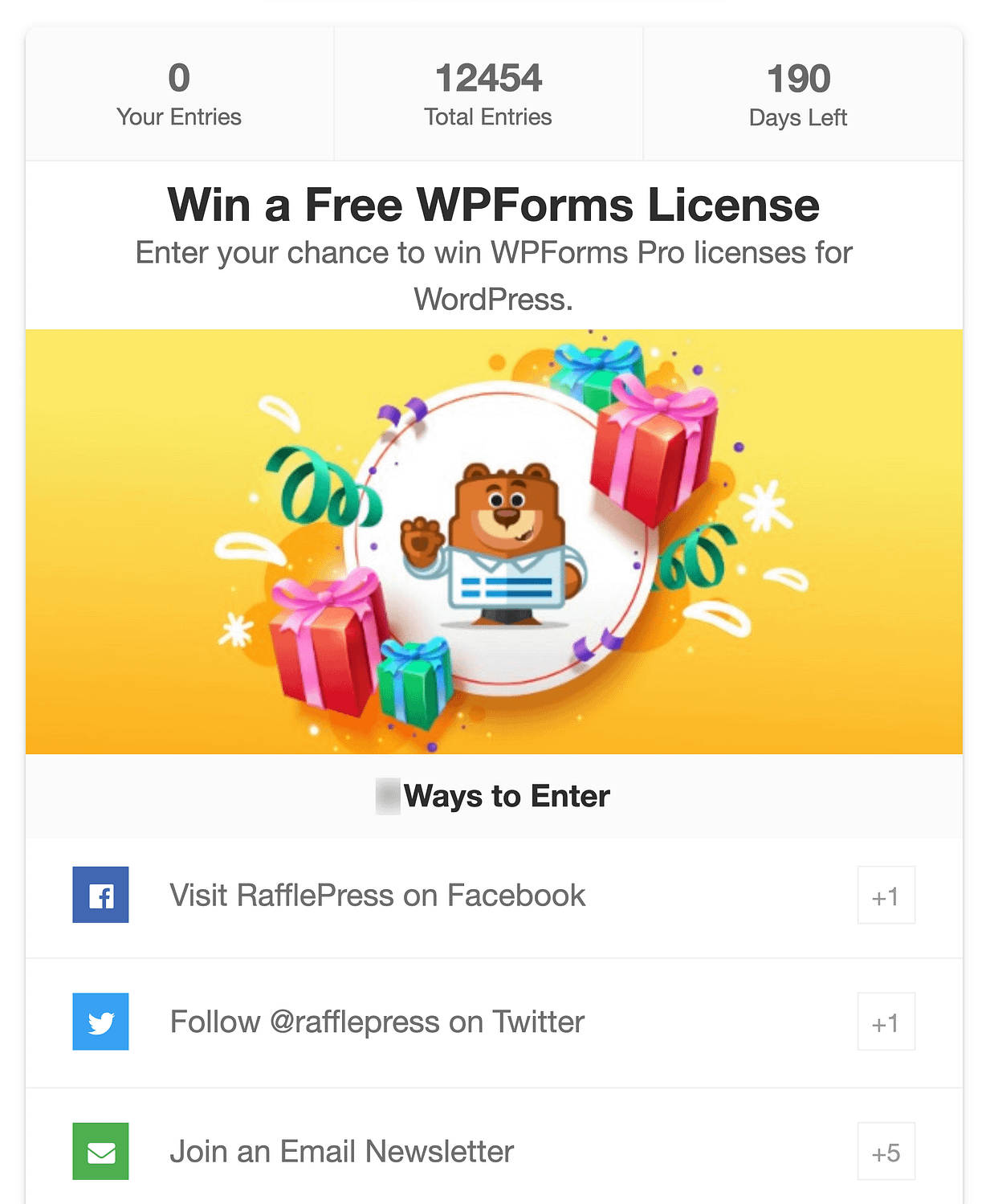
Some favorites include:
- Fastory – A mobile-first social experience tool for quickly making beautiful forms, contests, and games, all optimized for platforms like Facebook and Instagram.
- Wishpond – A social media contest builder with options for photo contests, coupons, referral contests, hashtag contests, and more.
- Heyo – A contest and sweepstakes builder with tools for constructing landing pages, forms, and social media posts, all from one dashboard.
- Rafflepress – A WordPress giveaway plugin for running contests and viral giveaways. This one primarily focuses on accumulating more follows and shares for your social pages.

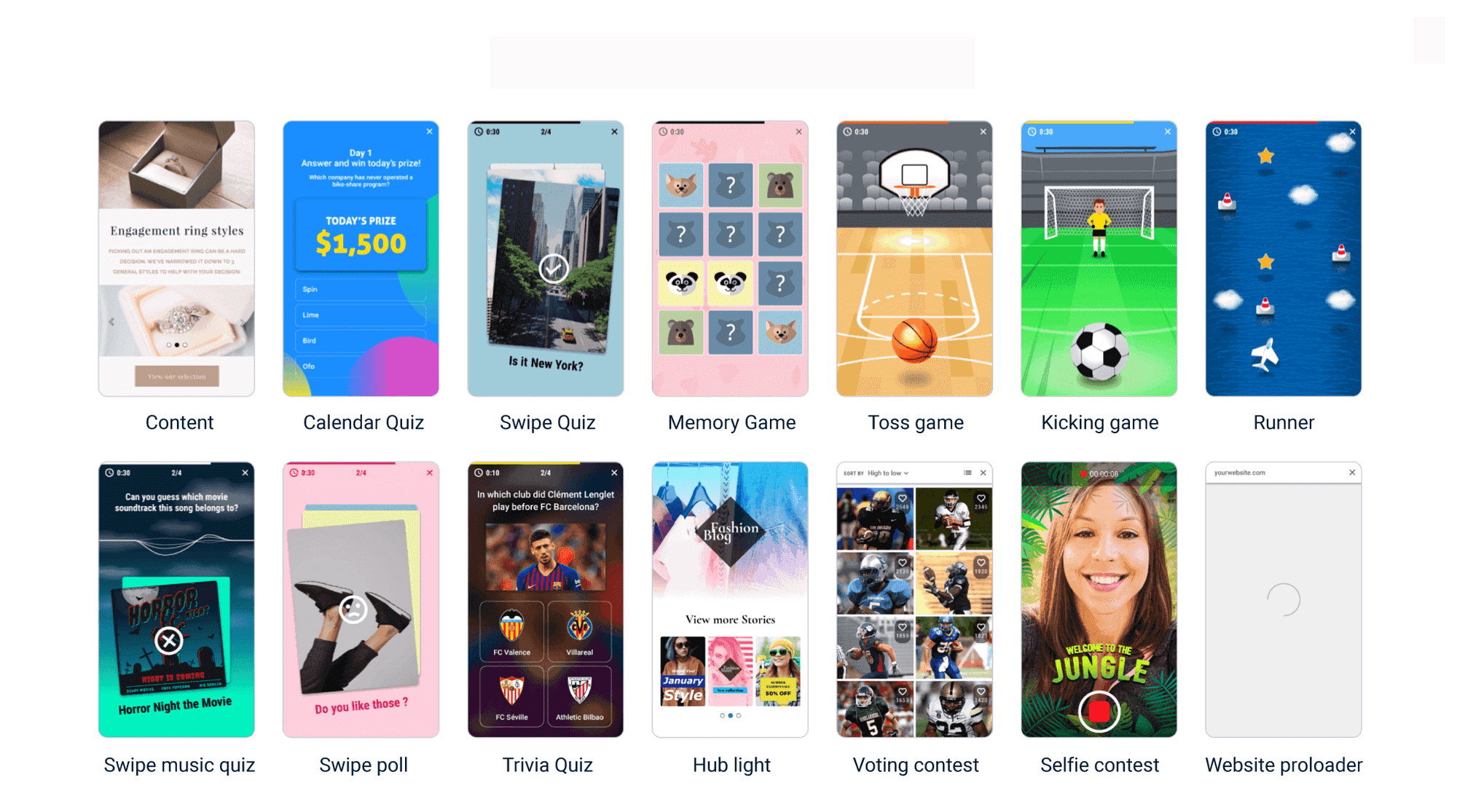
Like we’ve said, sometimes it’s easier for small businesses to only ask for shares and likes. Sometimes it’s best to make a quick submission form on your website or to even log the submissions by hand. However, it’s worth looking into the more automated software for social contest management that’s built exactly for this purpose.

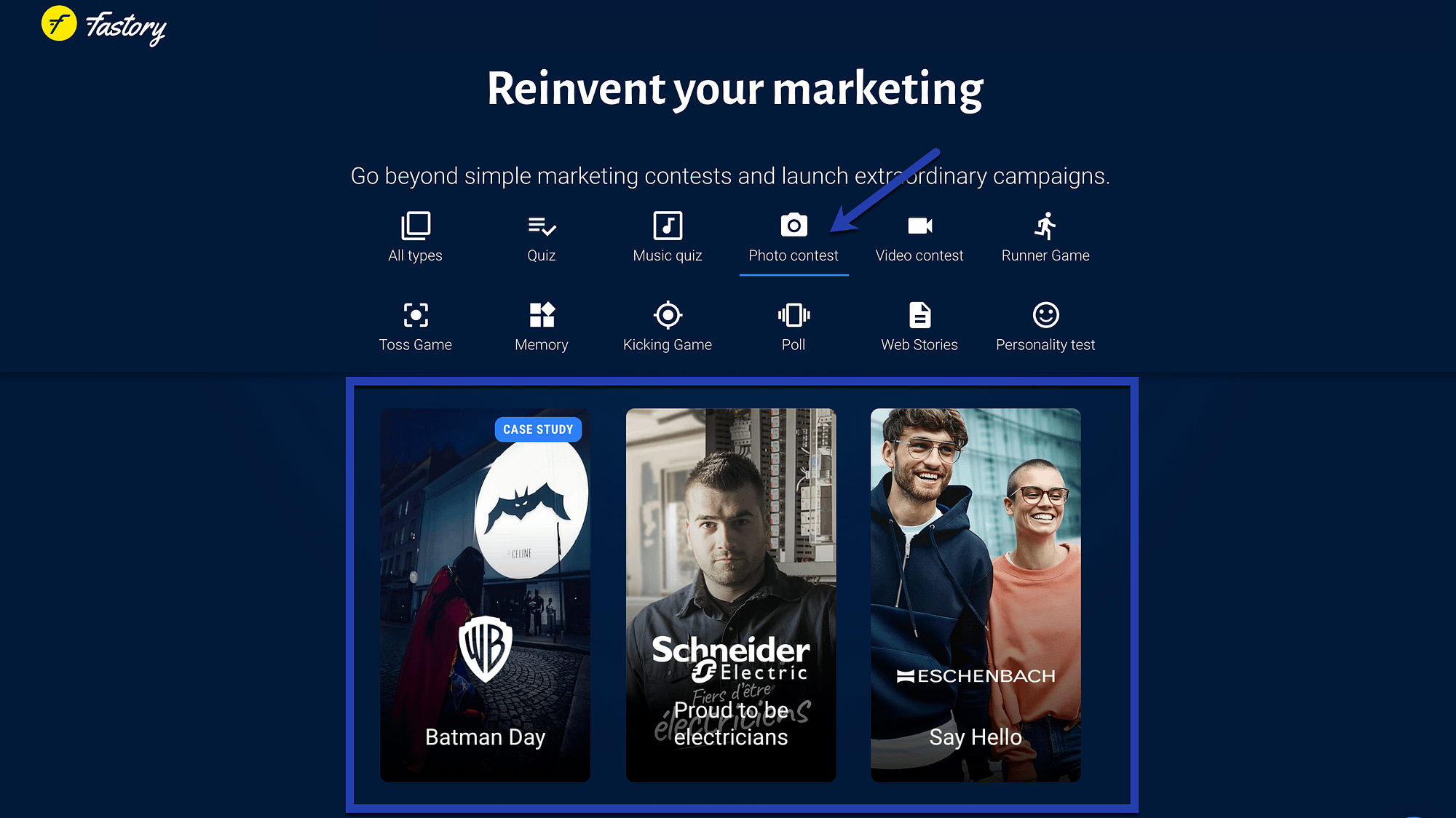
Test the Facebook contest like a regular user
Publishing a contest for the first time feels nerve-wracking, so we recommend easing those nerves by walking through the contest announcement and submission guidelines as if you were a customer yourself.
An even better option is to send the link, or a copy of the post, to a small group of friends and family. Ask them to write down any feedback about clarity, reasonableness, and potential improvements.
Promote the Facebook contest
Organic Facebook reach typically doesn’t have the strength you need to bring in more people to your contest. It’s a great idea to give your followers a sneak peek and first access to the contest, but at some point, it’s a solid plan to promote the contest on Facebook and other outlets.
We like to stick to Facebook advertising for these Facebook contests since you’re already on that platform, people don’t have to jump from one social network to another, and Facebook provides quick and intuitive ways to advertise the contest.
Your goal is simple: figure out your desired return on investment for that contest. Then, develop an advertisement that provides an enticing call to action and most information about the contest. Target those who may find your company or publication interesting, then run the ad through the entirety of your Facebook contest.
Even $20 to $100 per week has the potential to open the flood gates and prompt even more people to share all about your Facebook contest.
Announce the winner and contact them
No Facebook contest is complete without a grand announcement.
An announcement provides closure for those excited about winning, and it also gives you a chance to get your brand in front of all these new followers for one of the first times.

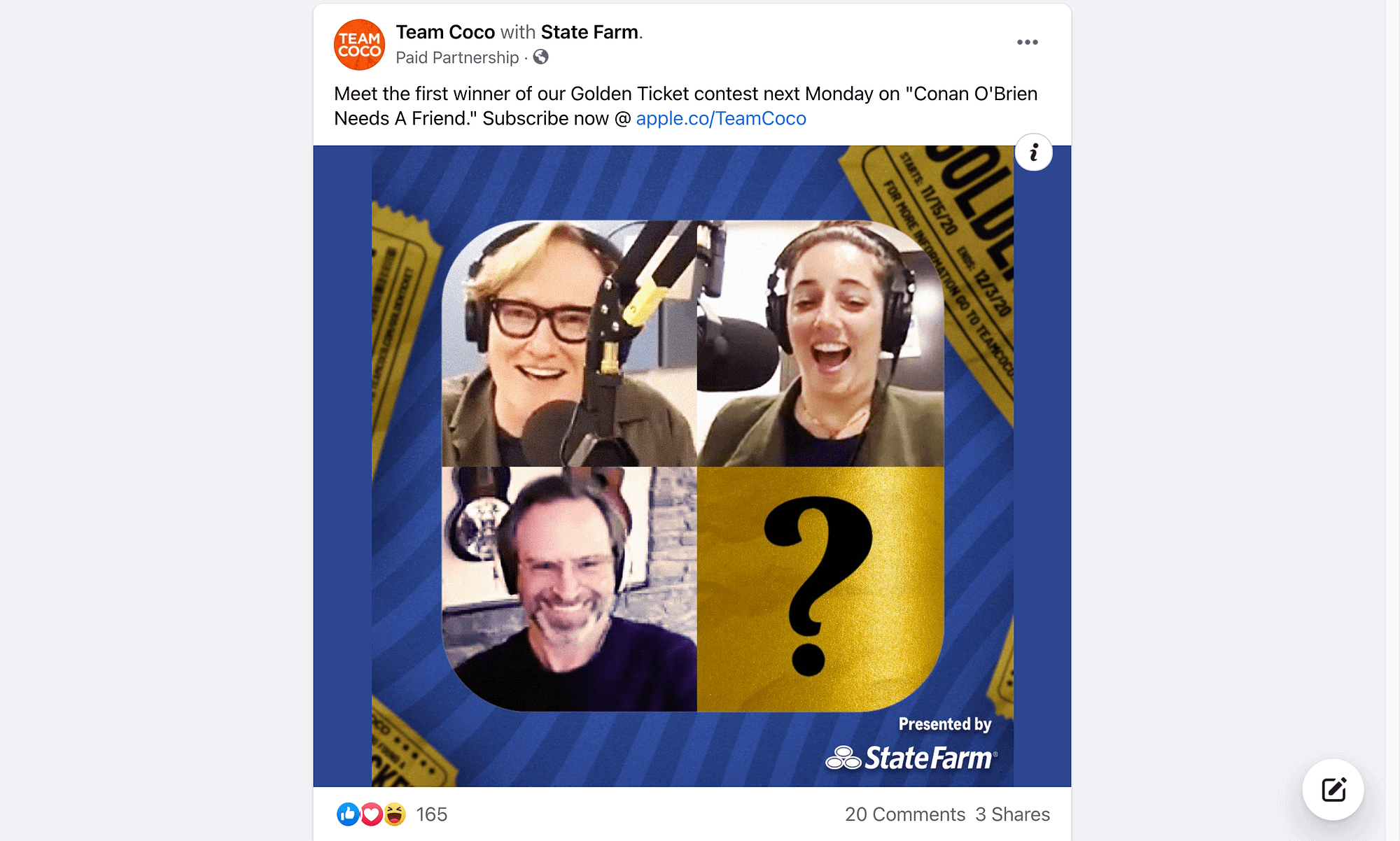
Finally, a winner announcement serves as a way to release information about even more contests in the future, or links to your other social sites, or links to your blog or store.
Essentially, that final post works similar to any marketing message.
Pro tip: Think about holding a sale, or giving out a discount coupon, to all contest participants. This makes people feel better about not winning and drives more traffic to your website.

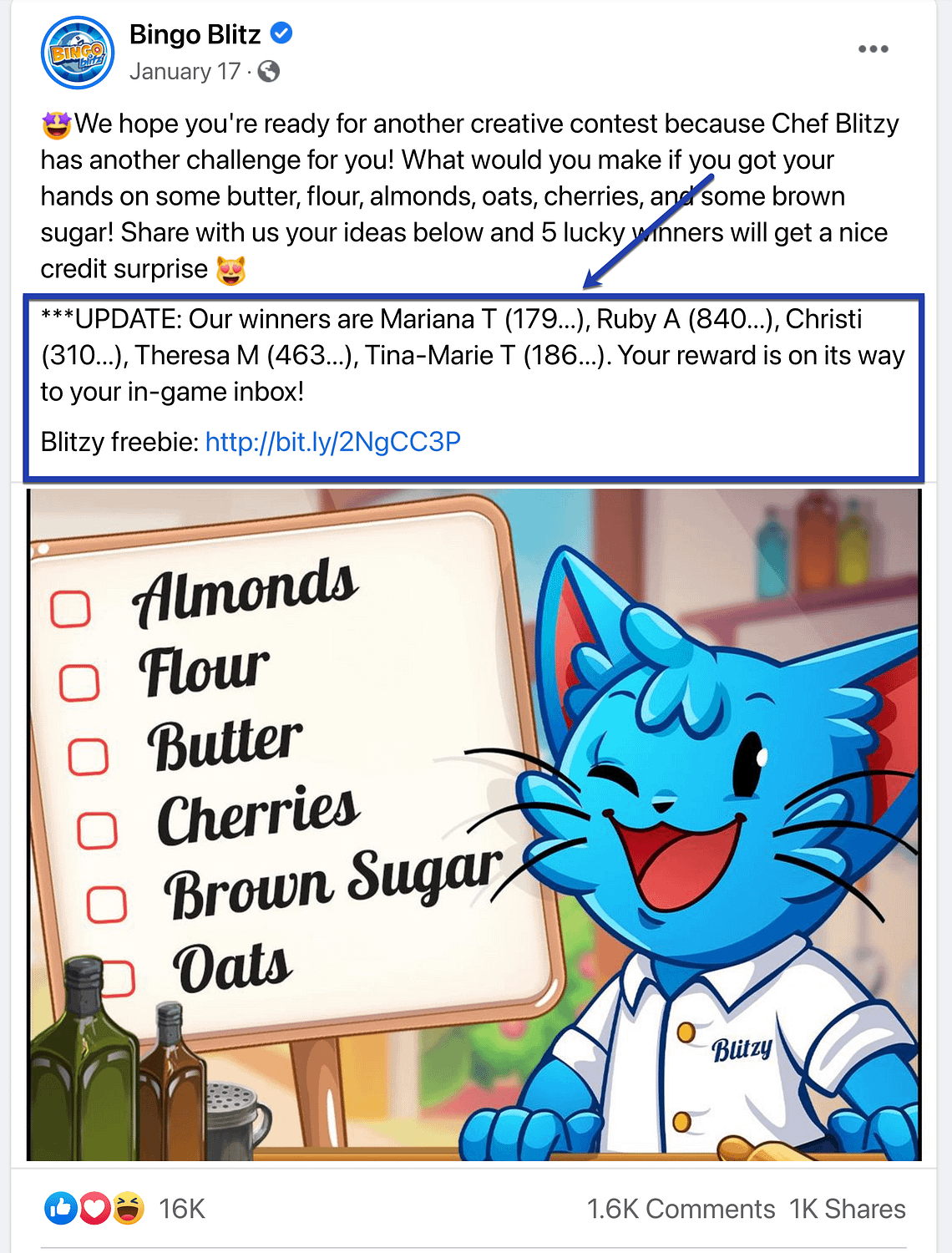
When it’s done, start another Facebook contest with what you learned from the previous one!
The first Facebook contest is always the hardest, but once you figure out the contest style and prize, it all becomes much easier. Not to mention, you can use the original announcement template from before for all contests in the future.
After that, it’s important to test your contest, manage the entries with the tool of your choice, and promote through Facebook Ads.
Make sure you utilize analytics and tracking to understand the ROI of your contest. This way, you see if more contests are worthwhile for your brand, or if there’s anything you can tweak to make them better in the future.
Have you ever run a Facebook contest? Share your experience in the comments section!
The post How to Run a Facebook Contest and Get Great Results: Beginner’s Guide appeared first on Revive Social.
